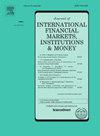会计与技术信息:哪个对股票收益的可预测性更重要?
IF 6.1
2区 经济学
Q1 BUSINESS, FINANCE
Journal of International Financial Markets Institutions & Money
Pub Date : 2025-08-25
DOI:10.1016/j.intfin.2025.102207
引用次数: 0
摘要
我们使用机器学习模型来确定什么对股票回报的可预测性更重要:技术数据还是会计信息。技术数据有一个优势——它总是能产生更准确的预测和更高的投资组合回报。这种优势不仅限于美国市场,而且延伸到世界主要发达市场,有时甚至表现出更强的效果。此外,它在公司规模和时间段内仍然非常强劲。然而,它的优势在短期内最为明显,并以更高的流动率为代价。会计信号虽然总体上较弱,但在较长时间内表现更好,并支持较低成本的实施。最后,技术策略在不稳定、难以估值的环境中表现出色,而基于会计的模型在估值不确定性较低时表现更好。本文章由计算机程序翻译,如有差异,请以英文原文为准。
Accounting vs technical information: what matters more for stock return predictability?
We employ machine learning models to determine what matters more for stock return predictability: technical data or accounting information. Technical data holds an advantage—it consistently yields more accurate forecasts and higher portfolio returns. This superiority is not limited to the U.S. market but extends to major developed markets worldwide, at times showing even stronger effects. Furthermore, it remains remarkably robust across firm sizes and time periods. However, its edge is most pronounced at short horizons and comes at the cost of higher turnover. Accounting signals, while weaker overall, perform better over longer horizons and support lower-cost implementation. Finally, technical strategies excel in volatile, hard-to-value contexts, whereas accounting-based models fare better when valuation uncertainty is low.
求助全文
通过发布文献求助,成功后即可免费获取论文全文。
去求助
来源期刊
CiteScore
6.60
自引率
10.00%
发文量
142
期刊介绍:
International trade, financing and investments, and the related cash and credit transactions, have grown at an extremely rapid pace in recent years. The international monetary system has continued to evolve to accommodate the need for foreign-currency denominated transactions and in the process has provided opportunities for its ongoing observation and study. The purpose of the Journal of International Financial Markets, Institutions & Money is to publish rigorous, original articles dealing with the international aspects of financial markets, institutions and money. Theoretical/conceptual and empirical papers providing meaningful insights into the subject areas will be considered. The following topic areas, although not exhaustive, are representative of the coverage in this Journal. • International financial markets • International securities markets • Foreign exchange markets • Eurocurrency markets • International syndications • Term structures of Eurocurrency rates • Determination of exchange rates • Information, speculation and parity • Forward rates and swaps • International payment mechanisms • International commercial banking; • International investment banking • Central bank intervention • International monetary systems • Balance of payments.

 求助内容:
求助内容: 应助结果提醒方式:
应助结果提醒方式:


